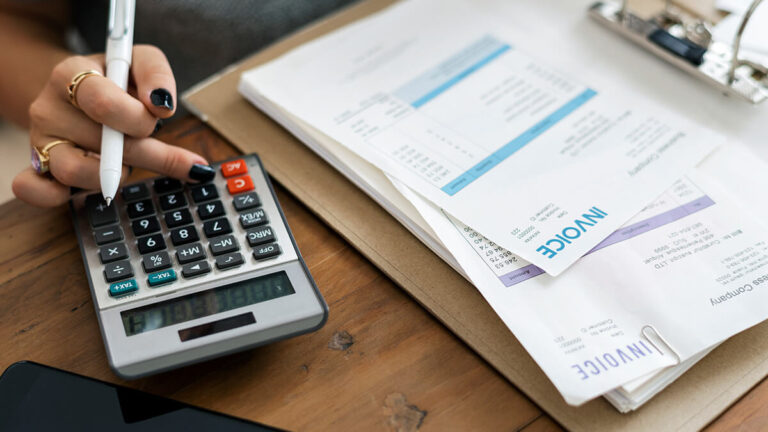Almost everybody in the majority of states pays sales taxes at the time of purchase. And yes, this includes business owners shopping for their ventures. But if you purchase and resell goods to your customers, you may consider applying for a resale certificate. Eligible businesses use resale certificates to get out of paying sales tax when they buy certain goods from a vendor.
So, who qualifies for this get out of sales tax free card? How can you apply?
Sales tax overview
Before we dive into the wonderful world of sales tax exemptions, let’s discuss what is sales tax. Sales tax is a pass-through tax that sellers collect from customers at the point of sale.
Generally, sales tax is a percentage of the buyer’s purchase. After collecting sales tax, the seller remits it to their state.
Most states (45 of them and Washington D.C., to be exact) have sales tax laws. Alaska, Delaware, Montana, New Hampshire, and Oregon do not impose sales tax on buyers.
Sellers must collect sales tax from customers if their business has sales tax nexus, or presence, in a state.
What is a resale certificate?
A resale certificate exempts the holder from paying sales tax when they purchase certain goods. Generally, resale certificate holders are businesses that either resell or use the purchased goods as parts in their own offerings. That way, only the buyers of the final product pay sales tax. A resale certificate is also called a sales tax certificate, reseller permit, or sales tax exemption certificate.
If you qualify for a resale certificate, you do not have to pay sales tax when you purchase qualifying goods from a vendor. However, you are still responsible for collecting sales tax from customers.
Again, a sales tax certificate only exempts you from paying sales tax on qualifying goods. It does not exempt you from paying sales tax on items you use in your business (e.g., office supplies). Qualifying goods are either items you plan to resell or use as parts in products or services you sell.
Let’s say you buy desks with the intent of reselling them. When you purchase the desks, the seller does not charge sales tax because of your certificate. When you sell the desks to customers, you must charge and collect sales tax.
If you sell items to a business with a resale certificate, do not collect sales tax. Instead, that business will collect sales tax from its customers.
Sales tax exemption certificates legally let buyers get out of paying sales tax. But, that doesn’t mean that sellers legally need to accept them. Retailers can reject legitimate resale certificates. Generally, retailers do this because they don’t want to risk accepting a fraudulent permit. Or, a seller might reject a resale certificate to prevent retail arbitrage.
Who qualifies for a resale tax exemption certificate?
Not all businesses should apply for a reseller permit. You may consider obtaining a certificate if you regularly buy wholesale or use purchased goods in your offerings.
The following types of businesses may consider applying with their state for a sales tax certificate:
- Resellers
- Retailers
- Businesses with tax-exempt status (e.g., 501(c)(3) organizations)
Keep in mind that all businesses must apply for a tax exempt certificate through their state. There are no automatic sales tax exemptions.
For example, a nonprofit organization would need to apply for 501(c)(3) status and then apply for sales tax exemption.
Remember that a sales tax exemption certificate does not apply to every purchase you make for your business. It does not count toward items you use throughout the usual course of business.
How to apply for a state resale certificate
Interested in getting a reseller permit? Here are two things to keep in mind about resale certificates:
- Resale certificates can either be good toward one purchase or they can cover numerous purchases during a time period
- You might send a resale certificate form to your state or directly to the supplier
Although requirements and applications vary by state, the general process consists of:
- Getting a sales tax permit before applying (if applicable)
- Filling out a resale certificate form
- Receiving a resale certificate and/or number
Getting Your Sales Tax Permit: If you don’t already have one, your first step is to apply for a sales tax permit through your state. To apply for a sales tax permit, you must go to your state’s Department of Revenue website. Generally, you will need to provide key information, like your business structure, and pay a fee.
Filling Out Resale Certificate Form: The next step of applying for a resale certificate is to actually fill out the form. Again, you may need your sales tax permit for your application. You must also include details about your business and specify the types of products that should be exempt from sales tax. Depending on your location, you will either submit your application to the state or to the supplier.
Receiving Resale Certificate: After you apply for your resale certificate, your state may send you a sales tax certificate of exemption. You may also receive a resale number that is separate from the sales tax permit ID. Or, you might just take the form directly to a vendor.
Resale certificate forms by state
Because each state is different, we’ve put together the chart below to streamline your resale certificate application process. Click the links below for resale certificate templates, examples, or FAQs.
In many cases, you will need to renew your resale certificate. Check with your state for more information on expiration dates.
Once you receive a sales tax resale certificate, you might be wondering whether you can use it in other states. In most cases, you can. However, there are a few states that do not accept out-of-state sales tax exemption certificates. In these cases, you will need to apply for an additional permit with the state.
States that do not accept out-of-state resale certifications include:
- Alabama
- California
- D.C.
- Florida
- Hawaii
- Illinois
- Louisiana
- Maryland
- Massachusetts
- Washington
Reseller permit best practices
Whether you’re using or accepting resale certificates, there are some things you can do to keep things legal.
Keep the following reseller permit best practices in mind:
- Understand state rules on sales tax certificate use
- Bring certificate copies to sellers OR verify permits are legitimate before accepting them from buyers
- Recognize that sellers don’t have to accept your permit OR realize that you can decline buyer permits
- Familiarize yourself with resale certificate expiration dates
Remember to record the sales tax you collect from customers! Use Patriot’s online accounting software to easily manage your books. What are you waiting for? Try out the software with your self-guided demo today!
This article is updated from its original publication date of October 3, 2019.
This is not intended as legal advice; for more information, please click here.


